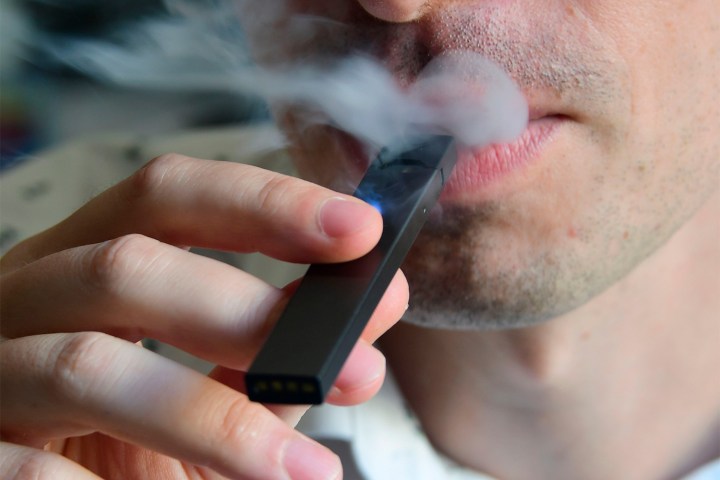
A majority of Americans support a federal flavored vape ban, and doubt e-cigarettes truly help people quit smoking cigarettes, according to new polling data from YouGov. Additionally, Americans consider vaping to be challenging to quit — contradicting years of industry marketing that suggests vaping works as a cessation aid.
52% support a ban at the federal level with 29% opposing according to results shared with Digital Trends, with support for municipal and state-level bans at similar levels. Nine in ten respondents reported hearing at least something about the vaping illness epidemic in the news, showing Americans are paying attention to the ongoing crisis.
According to public health officials, at least 21 people in the U.S. have died from a vaping-related lung illness. According to the Centers for Disease Control and Prevention (CDC), there were at least 1080 cases of the lung illness as of October 1. The CDC has warned the public at large to avoid using e-cigarettes, especially products containing THC, as it investigates the mysterious illness.
This high level of engagement with the negative press around vaping seems to be translating into questions over its health effects and safety, with nearly two-thirds expressing some level of concern. While the vaping industry has long maintained the position that e-cigarette use is a safer alternative to smoking cigarettes, the public at large appears to disagree.
YouGov did not break down responses between those who vape and those who don’t, which could skew the results considering the low numbers of respondents who used cigarettes or vaping products regularly. 15% said they had at least one cigarette a day, three times the number who said they vaped daily.
53% believe that e-cigarettes aren’t effective in helping people quit smoking cigarettes. Similar numbers see vaping as an equally difficult habit to kick, with just two in ten believing vaping is easy to stop.
With these results, it does seem that Americans would not push back against vaping bans, as many see vaping in a negative light. Other findings from the poll also suggest President Donald Trump would stand to lose little support if the ban does indeed take effect.
While two-thirds of those polled said Trump’s plans make no difference in their level of support, 12% say it makes them support him more and 9% less. Most of the drag on the president’s support comes from “Generation Z,” which isn’t surprising considering teen vaping is Trump’s primary impetus for the vaping ban.
Some groups had suggested that pursuing the vaping ban could harm the president’s chances for reelection. Several conservative lobbyists have also pressured the Administration to back off the ban in recent weeks, according to reporting from The Hill.
YouGov polled 1,227 people from September 24-25.
Editors' Recommendations
- Juul patents an A.I. vape to help people quit nicotine
- Instagram bans influencers from promoting tobacco and vaping in branded content
- Black market THC vape pods have killed dozens. Why are people still buying them?
- Congress is investigating whether bots misled people about vaping health risks
- Ban Juul, not vaping


